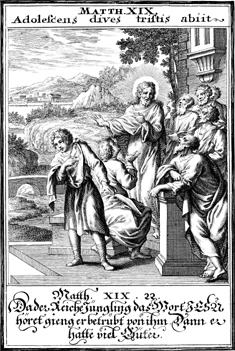
Johan Christoph Weigel
1695
I must needs glory, though it is not expedient;
but I will come to visions and revelations of the Lord.
I know a man in Christ, fourteen years ago
(whether in the body, I know not; or whether out of the body, I know not; God knoweth),
such a one caught up even to the third heaven.
And I know such a man
(whether in the body, or apart from the body, I know not; God knoweth),
how that he was caught up into Paradise,
and heard unspeakable words,
which it is not lawful for a man to utter.
2 Corinthians 12:1-4 RV
I awoke this morning with a strong sense of Paul. Like I had spent some time with him, or he had been around me. An unusual occurrence by any rate; moreso because I have not spent any time studying his writings.
I know why I had this feeling. I have been reading The Gnostic Gospels by Elaine Pagels, in which the above quote is spoken of.
I have had a very difficult time with Paul. Many of his diatribes about women etc have left me thinking he was a bit of difficult man. Yet this quote is very close to my thinking.
Was Paul a mystic? Does he here speak of receiving divine revelations? Out of body experiences? His conversion was certainly a mystical experience:
And as he journeyed, it came to pass that he drew nigh unto Damascus:
and suddenly there shone round about him a light out of heaven:
and he fell upon the earth, and heard a voice saying unto him,
Saul, Saul, why persecutest thou me?
cts 9:3-4 RV
How can it be that the writer who to me, most epitomises the orthodox position, can express something that even 1 John only hints at?
I believe in religious experience. To read them mentioned in the "super straight" Paul has been a minor revelation, and one that makes me aware that I while I am not orthodox, not only is there a place for people like me within the Church, we have scriptural backing for our experiences.
Now, how can I get John to hang out in the morning?










